The Heartful Listener – Part Six
RAVI VENKATESAN continues his Heartful Listener series with part six, transforming listening from intention to skill and demonstrating that even with the best mindset, effective listening must be practiced, honed, and embodied.
In the previous articles of this series, we explored the State of Being, the Qualities, and the Behaviors that elevate our capacity to listen. But even with the best mindset, heart, and intentions, listening remains a learned skill—one that must be practiced, honed, and embodied.
This part focuses on the four essential skills that make listening truly effective:
- Active Listening
- Deep Listening
- Professional Listening
- Centering
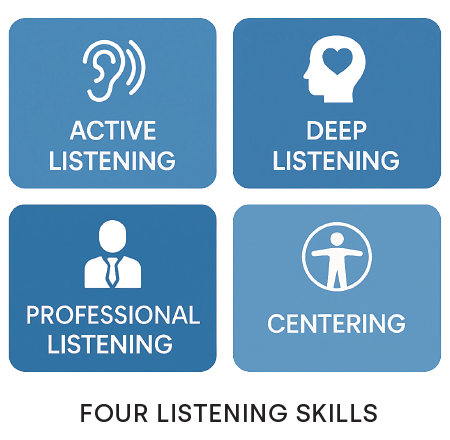
Active Listening – Engagement in the Moment
Active listening involves giving full, engaged attention, providing verbal affirmation, and using body language cues that let the speaker know they are being heard, valued, and understood.
Practices:
- Maintain eye contact, nod occasionally.
- Use brief verbal responses (“I see,” “Go on,” “That makes sense.”)
- Reflect and summarize what you heard.
Princess Diana was often called “the people’s princess” not just for her causes, but because of the way she listened. In hospital visits, she would kneel to eye level, hold hands, and listen silently to patients’ stories. Her presence alone made people cry—not from grief, but from feeling heard.

Deep Listening – Hearing Beyond Words
Deep listening is a contemplative and intuitive skill that involves listening for emotions, silences, body language, and what’s not said.
Practices:
- Observe tone, emotion, and energy shifts.
- Resist interrupting or “solving.”
- Pause after they speak, allowing them to go deeper.
A great example of this is Jimmy Carter at the Camp David Accords: In 1978, U.S. President Jimmy Carter brokered peace between Egypt’s Anwar Sadat and Israel’s Menachem Begin. Carter’s approach was not tactical negotiation—it was deep, heartful listening. Sadat later said, “He did not lecture us. He let us be heard—and in being heard, we changed.”
Deep listening is a contemplative and
intuitive skill that involves listening for emotions,
silences, body language, and what’s not said.
Professional Listening – Strategic, Ethical, Impact-Oriented
Professional listening involves ethical discernment, analytic clarity, and listening for patterns, gaps, or underlying challenges in high-stakes environments.
Practices:
- Separate personal bias from strategic understanding.
- Document carefully and confirm shared understanding.
- Listen for solutions, but don’t jump to them too quickly.
During the Eurozone crisis, Chancellor Angela Merkel was known for quietly listening in hours-long meetings. She would often summarize at the end, having absorbed and integrated every view.
Professional listening involves ethical discernment,
analytic clarity, and listening for patterns, gaps,
or underlying challenges in high-stakes environments.
Centering – The Prerequisite for Any Real Listening
Centering is the skill of stilling the mind, regulating emotion, and grounding awareness before and during a conversation.
Practices:
- Use breath to center yourself before a conversation.
- Practice micro-pauses between stimulus and response.
- Notice when you’re triggered and bring yourself back to neutral.
Thich Nhat Hanh is a great example of practicing this. Before meetings, he asked participants to pause and take three deep breaths in silence. “Only a calm, open heart can truly receive another’s pain.”
Where to Begin? Skill Practice Ladder
As with any new ability, practice begins with simpler settings and escalates with time. Use the ladder below to challenge your listening skills in various contexts progressively.
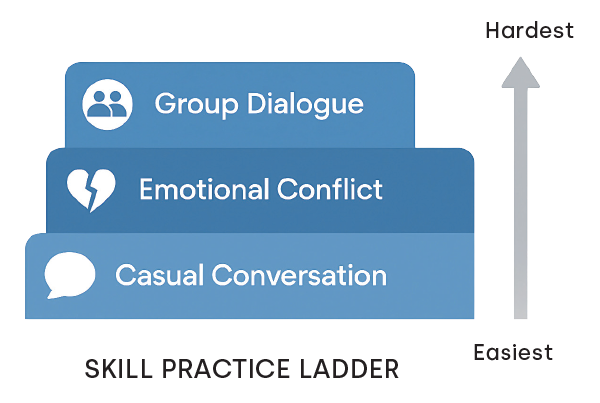
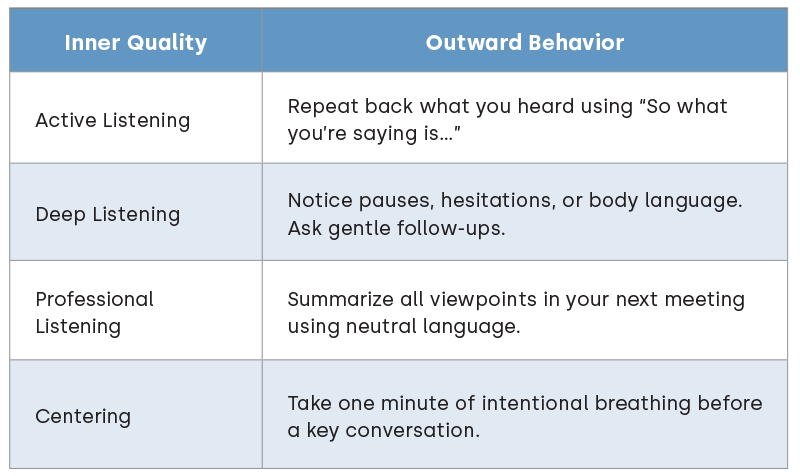
Self-Assessment Framework
Over the next sixty-ninety days, do a weekly check-in to grade yourself from one to five on each skill. You can also use this after important interactions.
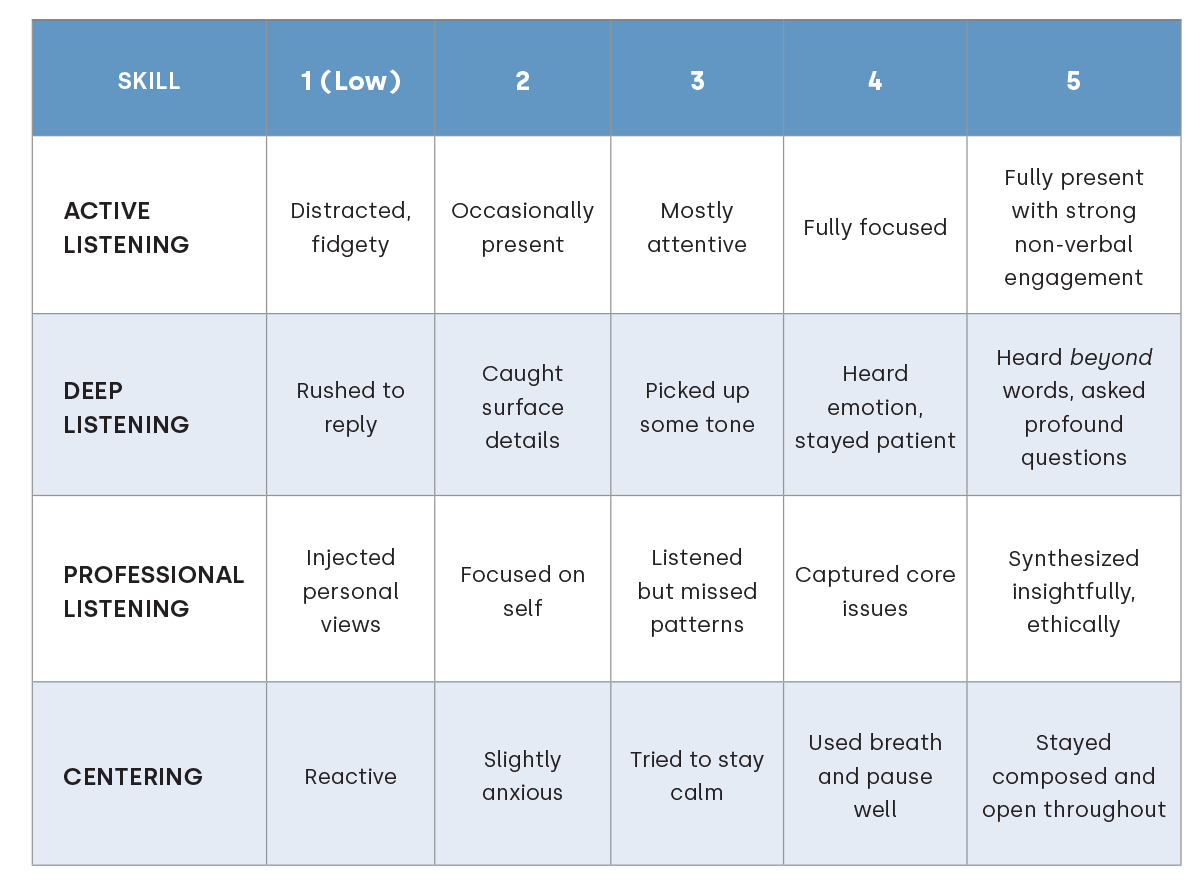
In the next part of this series, we will examine how the concepts we have learned come together in tackling real-life situations.
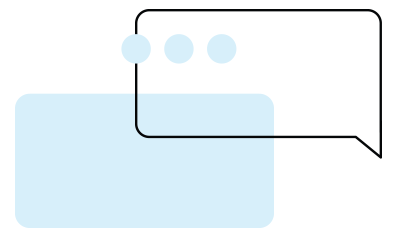

Ravi Venkatesan
Ravi lives in Atlanta, Georgia, and is currently the Chief Executive Officer at Cantaloupe. He is also a regular public speaker and public speaking coach. He has been a Heartfulness meditator for over 20 years and is passionate about app... Read More

